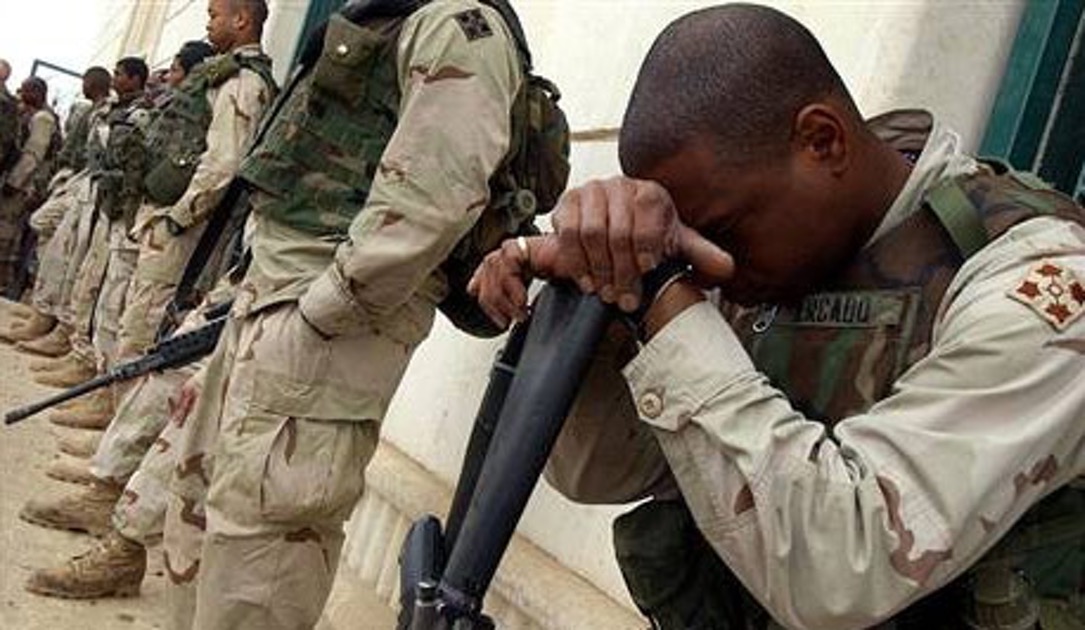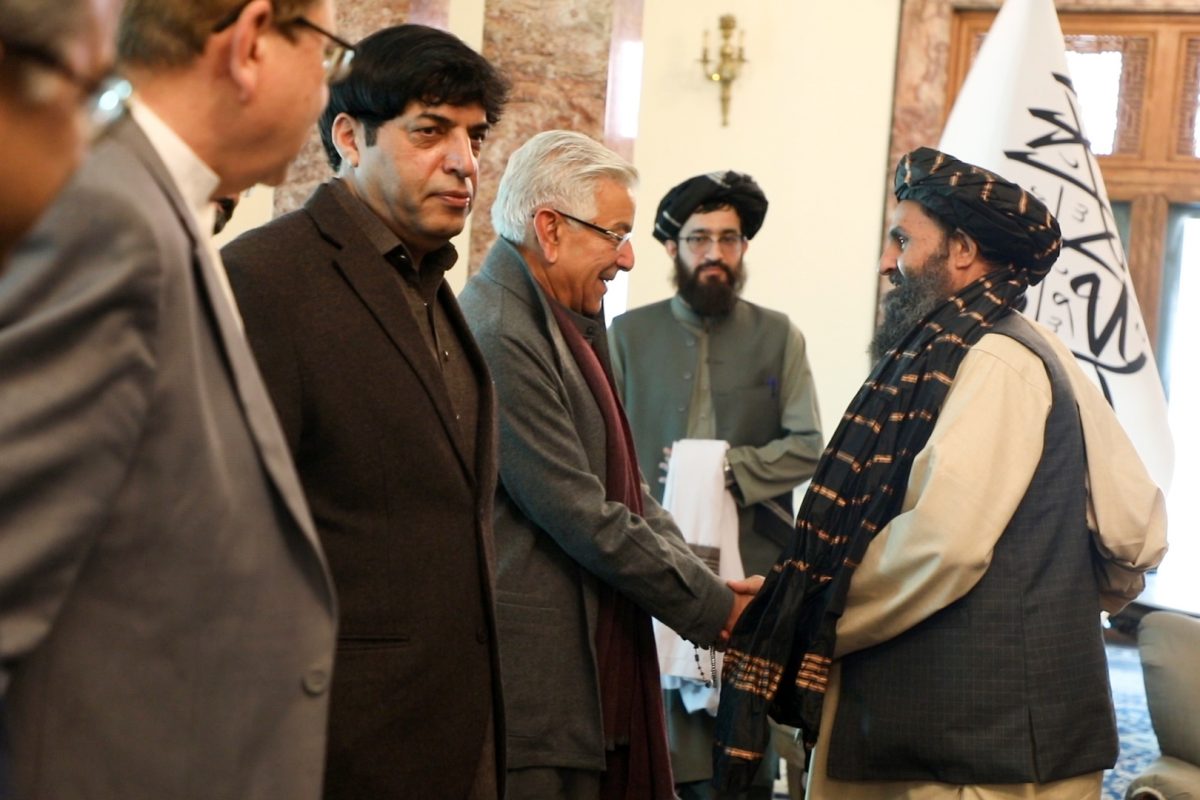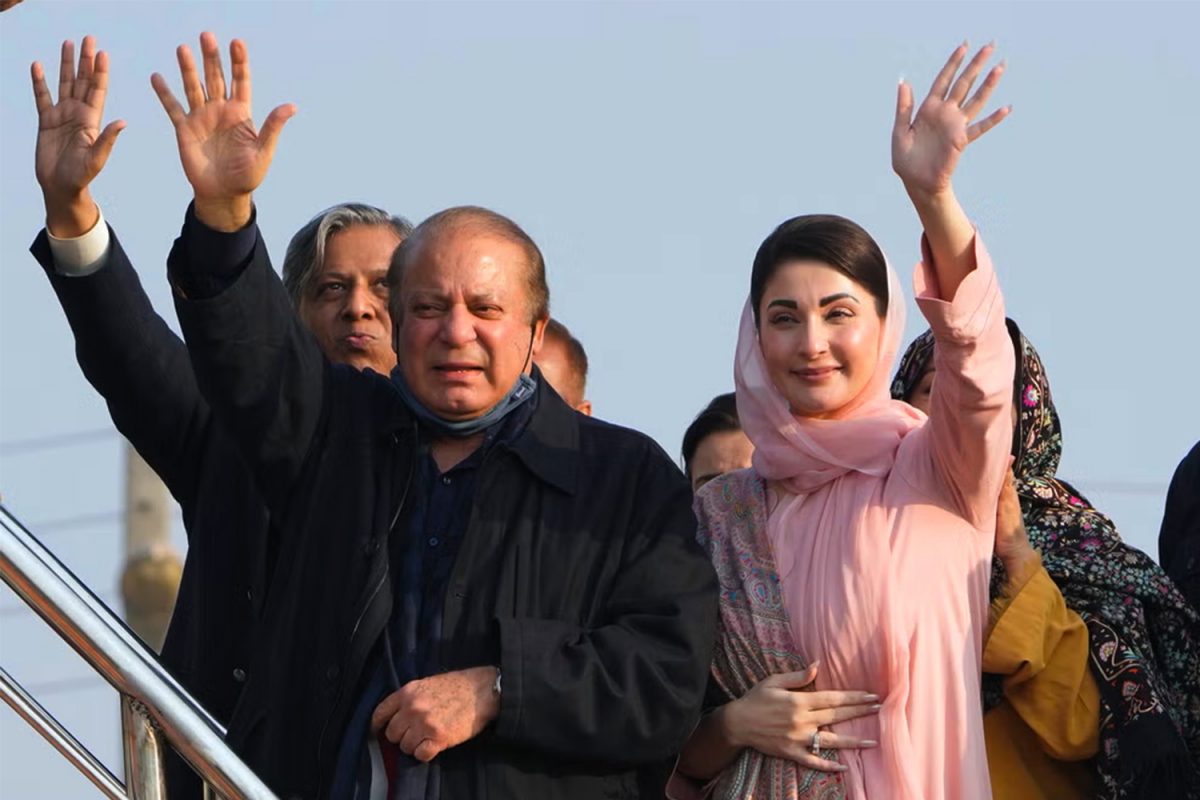By Adnan Khan
In the 17th year of what is America’s longest ever war, the Afghan state, the US built regime is not just ineffective but it is not far from collapse. On the security front Kabul has failed to deal with the insurgency led by the Taliban, it has failed in every case to hold territory wrestled from Taliban. In a security breach on April 21st Taliban attackers killed 150 soldiers in a security compound.[1] In the past few weeks, top American security officials have travelled to Afghanistan. The first to visit was National Security Adviser H.R. McMaster on April 16th. A week later, Defence Secretary James Mattis arrived in the Afghan capital on an unannounced visit. The US military and state department have recommended sending at least 3,000 more US troops to Afghanistan to fight the Taliban and this comes as the administration of US President Donald Trump is engaged in a bottom-up review of US military commitment, not just in Afghanistan but across the globe. The US is now approaching its Vietnam moment in Afghanistan – should it cut its losses and pull out as it did in Vietnam.
[perfectpullquote align=”right” cite=”” link=”” color=”” class=”” size=””]”After ten years of war and with the global economy reeling, the nations of the West no longer want to pay, either in treasure or in lives, the costs of their efforts in a place that for centuries has resisted foreign attempts to tame It.”[/perfectpullquote]
Ever since the days of the Bonn Conference in 2001, America struggled to form a functioning Afghan government whose writ extended beyond Kabul. By the time the US began its invasion of Iraq in March 2003 Hamid Karzai the American stooge had been appointed the head of the interim authority and in 2004 he became the official president of Afghanistan after an election fraught with widespread fraud. In 2014 Hamid Karzai was replaced with Ashraf Ghani with an election once again marred by fraud. But regional warlords Atta Muhammad Noor from the Balkh area, ethnic Uzbek leader Abdul Rashid Dostum (who is technically still Ghani’s vice president), and Ismail Khan from the western Herat region have more power than the central government in Kabul. Not surprisingly America was forced to change its strategy and postponed its exit date several times. Finally, in May 2012, at a NATO summit in Chicago, America and her allies accepted defeat. The joint communique issued expressed the collective desire of all the NATO countries to draw the curtain on their Afghan misadventure. The statement read: “After ten years of war and with the global economy reeling, the nations of the West no longer want to pay, either in treasure or in lives, the costs of their efforts in a place that for centuries has resisted foreign attempts to tame It.”[2] The US constructed political system has never taken hold and is now not only unravelling, but if present trends continue the logical outcome will be regime collapse.
The US has utterly failed in establishing a viable Security Services, be it the army, intelligence or domestic Police Force. After 17 years, the Afghan National Army (ANA), the Afghan National Police and the National Directorate of Security (the intelligence service) are all in tatters. At the same time they are targeted by a ferocious insurgency. The Bush administration believed its operational goals could be achieved by restricting the size of Americas military footprint and having Pakistan play a small role in the tribal areas. Obama on the other hand, espoused a greater military footprint i.e. more US soldiers on the ground in Afghanistan and coercing Pakistan to play an active role in pursuing the war in the tribal areas. Additionally, Obama made a pledge to the American electorate to reduce the size of US forces in Afghanistan by 2012. Although Washington has spent tens of billions of dollars so far on Afghan security forces, they are in reality in a losing battle following the Taliban around the country. The Kabul government today controls little territory, its armed forces abandon rural outposts to protect provincial capitals and road connections between major cities remain tenuous. The Taliban remain the dominant force and continue to expand across the country. They now reach into areas in the north such as Badakhshan province, where they couldn’t previously penetrate.
[perfectpullquote align=”right” cite=”” link=”” color=”” class=”” size=””]Many will remember George W Bush standing behind the banner ‘Mission Accomplished’ on board Abraham Lincoln giving his Iraq victory speech. But after 17 years in the battle for Afghanistan the Taliban have prevailed[/perfectpullquote]
When the US was marred in an insurgency in Iraq around 2005 the Taliban made a comeback. Whilst the US was initially able to remove the Taliban from power with ease, Stratfor outlined what really occurred: “It is important to remember that the Taliban was never really defeated on the battlefield. Once they realized that they were no match for U.S. air power in a conventional war, they declined battle and faded away to launch their insurgency.” As the US sunk in a quagmire it then began preparing the ground for reconciliation with the Taliban. In a lengthy message on the occasion of the of Eid al-Fitr, in 2011 the Taliban leader Mulla Muhammed Umar confirmed negotiations had been on-going with the US.[3] This was in hindsight the first sign the US had accepted it could not defeat the Taliban. But these negotiations never made any progress especially when the Taliban could see the weakness of the US military. The Taliban has infiltrated all elements of Afghanistan’s institutions as well as forces ranks. This can be seen from the many attacks that have taken place over the years due to security breaches. On April 21st, the Taliban wearing military uniforms and with identification passes and using military vehicles were able to enter a key army base in the northern Balkh province, killing 150 soldiers in the compound.[4] Many will remember George W Bush standing behind the banner ‘Mission Accomplished’ on board Abraham Lincoln giving his Iraq victory speech. But after 17 years in the battle for Afghanistan the Taliban have prevailed.
The US has fallen victim to the same reality both the Soviet Union and Britain befell previously and that is an invading force, in the long run will ruin itself in attempting to conquer Afghanistan. If there were a solution to this, it would have been implemented long ago by US policy makers and we would not be writing about the 17th year of a US foreign military invasion. America has shown it can destroy regimes but its nation building capabilities are usually a failure. US president Donald Trump now needs to decide to continue pacifying Afghanistan and continue to lose troops in a war that cannot be won or cut its losses and pull out as it did in Vietnam. If it does this the government in Kabul would collapse and what would be left is civil war. This has usually been the case when the superpower invaded Afghanistan and eventually cut its loses and ran.
[1] http://www.aljazeera.com/news/2017/04/taliban-attacks-key-military-base-north-afghanistan-170421134021613.html
[2] http://www.nytimes.com/2012/05/22/world/nato-formally-agrees-to-transition-on-afghan-security.html
[3] https://www.channel4.com/news/mullah-omar-statement-ignites-hopes-for-taliban-negotiations
[4] http://www.aljazeera.com/news/2017/04/taliban-attacks-key-military-base-north-afghanistan-170421134021613.html





